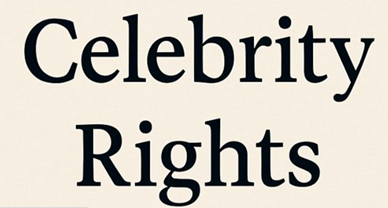Is Europe’s New Copyright Directive An Answer To Infringement?
The European Parliament, in its most recent activity, passed a law that has the capability to change the face of the internet as we know it. The Directive on Copyright in the Digital Single Market, also known as the Copyright Directive, is heralded as one of the most contentious sets of directions and rules, in the arena of copyright laws.
In September 2018, the members of the European Parliament proposed and ultimately passed, the new Copyright Directive. Having made several amendments, which tighten the copyright law in several little ways, most eye-catching have been Articles 11 and 13 of this new directive. Article 11of the Copyright Directive, also known as the “link tax,” mandates that the legitimate publishers of content have the right to seek paid licenses if the online or social media platforms publish their stories or content. Also, in case of display of snippets of a content published or displayed, a certain amount of royalty would have to be paid to the author of the works, thereby encouraging only the use of a few individual words, to indicate a reference of a work that has a copyright, so as to escape the payment of hefty sums as royalty.
Earlier, in case of infringement of copyright on an online or a social media platform, the infringer would be held accountable, in its individual capacity. However, now, as per Article 13 of the Copyright Directive, the rules have changed. In case of infringement of copyright on an online platform, the platform, and not the individual, would be held vicariously liable, barring a few exceptions. This indicates that now, the online platforms have to be more vigilant, in scrutinizing the content being advertised and published, for public viewership. The lapse in the precise monitoring of the same would result in legal and monetary consequences not for the individuals, but for the platforms at large.
Reactions
The passing of the controversial directive garnered a lot of reactions, most of them being negative. Scores of people have criticized the amendment, calling it “draconian” and accusing it of putting an impediment on the free-flowing content and creativity. Much outrage has been expressed on Articles 11 and 13 specifically. Julia Reda, who is a member of the Pirate Party Germany and also, a vocalist in staunch opposition of the legislation, states that the implementation of this law would largely hamper the advertising and dissemination of content on the internet, especially the transmission of memes or parodies. She also stated that now, all the technological giants heading several online platforms would have to constantly monitor all the content being published and/or displayed, by way of administering various filters. Also, since every country has a slightly tweaked version of the copyright laws, this could come in direct conflict with them.
In order to monitor the content, the law does not directly mandate the installation of various filters. However, it is directly implicative of the suggestion, to receive the desired outcome.
According to Julia Reda, the adoption of several filters would also, ultimately display a few shortcomings with respect to permeating the quality of content. YouTube, a tech giant, is also known for glitches in its functioning, e.g unceremonious removal of videos despite them satisfying the criteria laid down for viewership. The filter would pick up the visual content, be it memes, parodies, or references, and recognizing the lack of permission to use the copyright, would not display the content. This would lead to unnecessary censorship of material on the internet. There is also a failure to explain the ambit of the definition of “commercial platforms.” The lack of clarity is also what is irking the public at large.
People are of the opinion that in the garb of being a protective measure, the directives are set to impose unnecessary sanctions, thereby hampering the free flow of creativity and entangling the citizens in a quagmire of laws.
On the flip side, several members of the Parliament consider it as an important piece of legislation in combating infringement of copyright. European Parliament member Axel Voss of the Christian Democratic Union of Germany, commented, that while the proposal isn’t perfect, it’s better than the existing system of allowing big tech companies to profit from ads run alongside material that infringes on others’ copyrights. He also mentioned that this is a good sign for the creative industry in Europe.
The logic and the intention of the act are to minimize, and ultimately put a complete stop to the flagrant act of infringement and plagiarism, which often goes undetected. The culture of ‘copy-pasting’ is now blurring the lines between being inspired and being illegal. The Act is sought to soldier on with the purpose of protecting the rights of the copyright holders and preserving the creativity of a human mind. Unfair and impermissible use of the content will invite strict sanctions on the platforms that hold and display the protected content.
Thus, it intends to act as a deterrent to small and big infringements alike, be it the copy-pasting of quotes of a registered author, by a third-party, on a different page or website, or plagiarising the content that has a copyright, in the name of ‘drawing inspiration,’ without obtaining necessary permissions.
Conclusion
This new directive is considered to have a blanket effect on the ongoing and ever-increasing infringement of copyright, especially on social media platforms. It implores the organizations to be even more careful and scrutinize the content with a lot more prudence. Since infringement often goes undetected, it has a risk of damaging the reputation of the author and also leads to undue exploitation of his/her creativity. The new directives promise to intervene and combat the rampant plagiarism, with a view to protect and serve the interests of the copyright holders. However, such a drastic step in the field of copyright laws is bound to face certain teething problems. Unintentionally, this act seems to violently clamp down the incessant infringement of copyright, whether deliberate or innocent and seems to deploy the strategy of attack more than that of defense.
Author: Sharmeen Shaikh, Intern at IP and Legal Filings, and can be reached at support@ipandlegalfilings.com.


